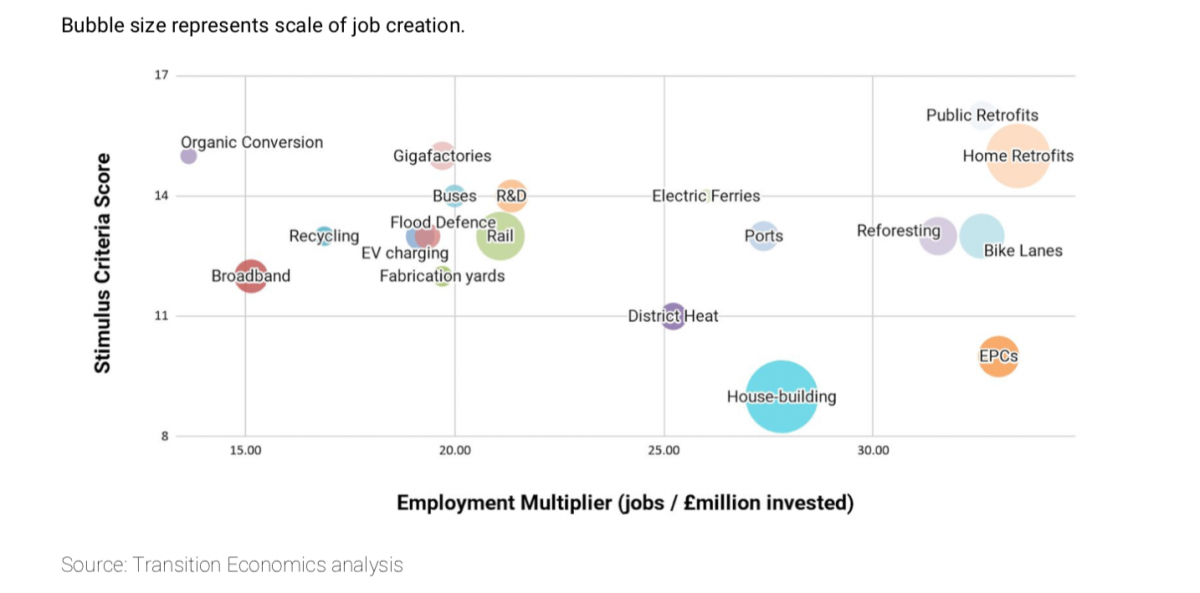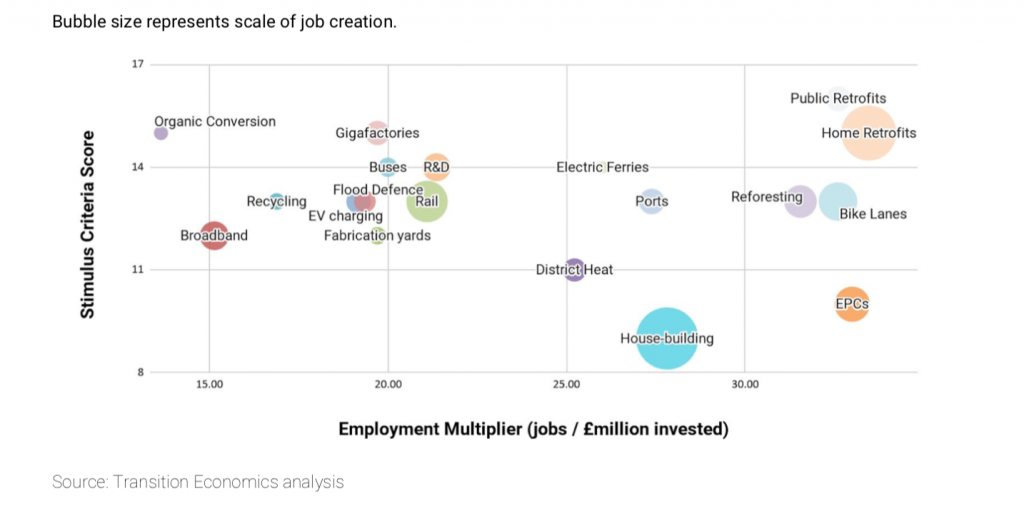Transition Economics was commissioned by Uplift to deliver analysis and policy proposals on the government’s British Jobs Bonus policy (now renamed the Clean Industry Bonus).
This work package was led by Paul Keenlyside (Ebberstone).
Uplift is publishing a “Clean Energy Made in Britain” summary report based on Transition Economics’ analysis and modelling.
The full analysis is available here:
RQ1: Analysis Report on the Clean Industry Bonus, Supply Chains and Job Creation
RQ2 & RQ3: Report on Design Options for the Clean Industry Bonus (British Jobs Bonus)
The Transition Economics analysis explores the following research questions:
- What can the British Jobs Bonus deliver in terms of domestic job creation and local content, and how does it get there?
- How can the design of the British Jobs Bonus secure quality jobs for workers, and ensure support both for those locations and industries most at risk and for those formerly/currently employed in oil and gas?
- What design is required for the British Jobs Bonus to fit most effectively into the existing regulatory and political environment?

